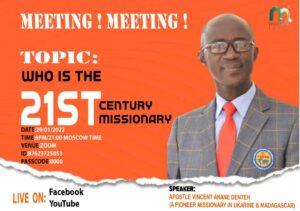Public health expert Tyler VanderWeele, who coauthored the cover story for our November print issue, recently analyzed how four school categories—public, private, religious, and homeschool—might affect the long-term well-being of adolescents.
VanderWeele and his team at Harvard examined a large swath of data, collected over more than a decade, which tracked the development of 12,000 nurses’ children into their young adulthood. The longitudinal study surveyed social, physical, and mental health trends across the group—like substance abuse, anxiety/depression, community engagement, and sexual activity.
The team’s analysis was published recently in PLoS ONE, and some of their findings were surprising.

In comparing key health indicators, the researchers found little difference between the long-term well-being of adolescents who attended public school and those who went to private school. (All of the kids who participated were between the ages of 9-14 when the study began.)
“We didn’t go in having any clear expectations, but we certainly didn’t expect to find basically nothing—which is what we found,” VanderWeele said. “We found relatively little difference comparing public and private schools across a whole host of outcomes.”
There was, however, a noted difference between the kids who attended public school and those who were homeschooled.
“We found a lot of positive, beneficial outcomes of homeschooling,” VanderWeele said.
Their data showed that homeschooled kids were more likely to volunteer, forgive others, possess a sense of mission and purpose, and have notably fewer lifetime sexual partners.
Homeschoolers were also 51 percent more likely to frequently attend religious services into their young adulthood. “It is quite possible that a lot of homeschooling parents were religious or did this for religious reasons, but we unfortunately don’t have data on the content of the curriculum,” VanderWeele said.
The researchers found only one adverse effect of homeschooling: those children were 23 percent less likely to attain a college degree than public and private school kids (who had similar college completion rates in this sample). “This may point to the need [to] focus more on college preparedness,” VanderWeele commented.
Another surprise was how the public-school experience compared to private religious education. In the long list of health metrics, the team found only a marginal difference on a few outcomes—around 10–15 percent—between the kids who were sent to public school and those who attended schools with faith affiliations.
The kids who went to religious schools were marginally more likely to register to vote, less likely to be obese, and more likely to have fewer lifetime sexual partners by the time they became young adults.
On the other hand, they were slightly more likely to engage in binge drinking.
“It might be that some children feel they want to rebel if they’re going through religious schooling all of their life,” VanderWeele said. “We weren’t really able to determine why, but something like that could be the explanation.”
In adulthood church attendance, homeschooled students also came out ahead of others. The kids who went to faith-based schools were only slightly more likely to attend religious services as young adults than those who went to either secular private or public schools—and much less likely than those who were homeschooled. (Worth noting: The study did not look at faith retention among Christian students, only religious attendance among the whole group.)
Demographer Lyman Stone cautions not to interpret the results of this single study as proving a definitive causal link—to say, for instance, that homeschooling or religious schooling alone are direct causes of higher religious attendance—but to recognize that this data set is related by association.
“The link between religious schooling and adult religious service attendance—and probably homeschooling too—is causal. This study doesn’t show that it’s causal, but it is. And we know that from other studies,” Stone says, referencing older research that analyzed Catholic education in France and Islamic education.

“The environment that a child is exposed to does cause changes in their adult religious behaviors,” Stone says, and “the results [of this study] are consistent with that.”
Yet the differences between public and religious schools were much less than VanderWeele expected, based on trends he’d discovered in previous research using the same data set.
“Our prior work had indicated that religious service attendance during adolescence was really important and shaped health and well-being in all sorts of ways,” VanderWeele said. That conclusion still holds. “But the effects were much smaller with religious schooling, which was not exactly what we expected.”
“What we found was that religious service attendance makes a bigger difference than religious schooling,” he said. “Religious service attendance has beneficial effects across the different school types and has stronger effects than religious schooling.”
In other words, the kids who grew up attending church regularly rated far higher in overall well-being as young adults than those who went to a religious school but did not go to religious services during their formative years.
And while “the effect of religious schooling itself did not seem to dramatically differ comparing those who attended religious services versus not,” Vanderweele explained, “for those who went to both, religious service attendance in youth was clearly the more dominant force in shaping health and well-being, at least as this pertains to the data and experiences 20 years ago.”
In previous studies, VanderWeele had discovered that weekly service attendance in adulthood was associated with “about 30 percent reductions in all-cause mortality, 30 percent reduction to the incidence of depression, [and] fivefold reductions in suicides.”
Furthermore, “regular service attendance helps shield children from the ‘big three’ dangers of adolescence: depression, substance abuse, and premature sexual activity,” VanderWeele writes in his latest article for Christianity Today. “People who attended church as children are also more likely to grow up happy, to be forgiving, to have a sense of mission and purpose, and to volunteer.”
“So regardless of school type,” VanderWeele says, “it’s beneficial to go to religious services, both as an adolescent and as an adult.”
Source: Christianity Today

































